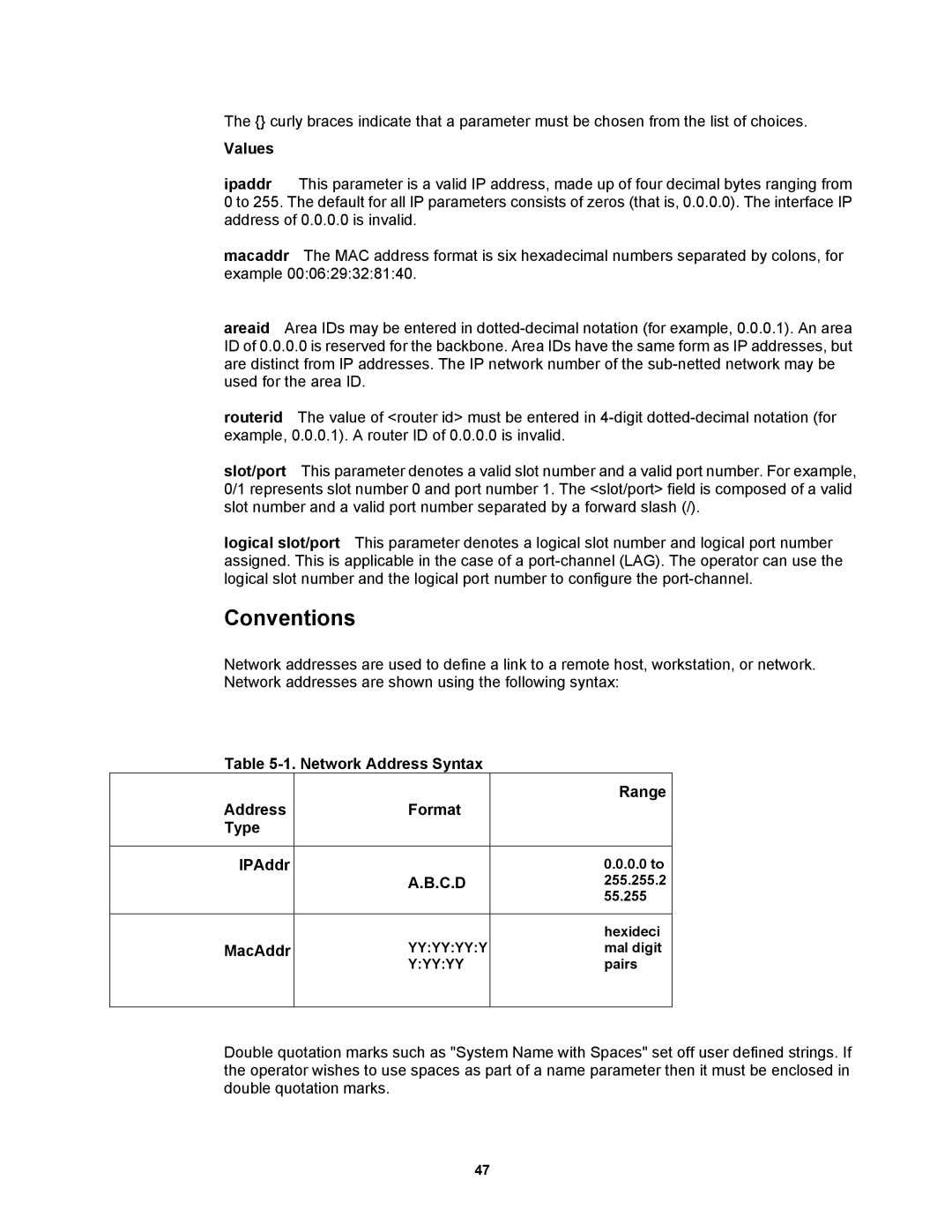
The {} curly braces indicate that a parameter must be chosen from the list of choices.
Values
ipaddr This parameter is a valid IP address, made up of four decimal bytes ranging from 0 to 255. The default for all IP parameters consists of zeros (that is, 0.0.0.0). The interface IP address of 0.0.0.0 is invalid.
macaddr The MAC address format is six hexadecimal numbers separated by colons, for example 00:06:29:32:81:40.
areaid Area IDs may be entered in
routerid The value of <router id> must be entered in
slot/port This parameter denotes a valid slot number and a valid port number. For example, 0/1 represents slot number 0 and port number 1. The <slot/port> field is composed of a valid slot number and a valid port number separated by a forward slash (/).
logical slot/port This parameter denotes a logical slot number and logical port number assigned. This is applicable in the case of a
Conventions
Network addresses are used to define a link to a remote host, workstation, or network. Network addresses are shown using the following syntax:
Table 5-1. Network Address Syntax
Address | Format |
Type |
|
|
|
IPAddr | A.B.C.D |
| |
|
|
MacAddr | YY:YY:YY:Y |
| Y:YY:YY |
|
|
Range
0.0.0.0to 255.255.2 55.255
hexideci mal digit pairs
Double quotation marks such as "System Name with Spaces" set off user defined strings. If the operator wishes to use spaces as part of a name parameter then it must be enclosed in double quotation marks.
47
